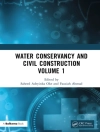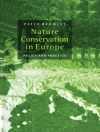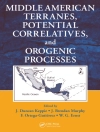This book discusses the problems in planning, building, and management strategies in the wake of application and expansion of remote sensing and GIS products in natural resources and infrastructure management. The book suggests proactive solutions to problems of natural resources and infrastructure management, providing alternatives for strategic planning, effective delivery, and growth perspectives. The uniqueness of the book is its broader spectrum of coverage with related interconnections and interdependences across science, engineering, and innovation. The book contains information that can be downscaled to the local level.
Presenting a wide spectrum of viewpoints and approaches, the book is a collective of topics such as application to agriculture and forestry (land and landscape, agriculture, forestry management and deforestation), water resources and ecology (hydro-meteorological, climate diagnostics, and prognostics, water resources management, environment management, cross-scale ecology and resilience), urban management (urban planning, design, construction and operations of infrastructure, natural disasters, novel approaches to upgrade old infrastructure), hydro informatics, predictive and geospatial data analytics, synthesis, and management through the various processes, tools, and technologies.
Tabela de Conteúdo
Introduction.- Applications to Agriculture and Forestry.- Water Resources and Ecology.- Urban Management.- Case Studies.- Conclusions and Recommendations.
Sobre o autor
Professor Vijay P. Singh, Ph.D., D.Sc., D. Eng. (Hon.), Ph.D. (Hon.), P.E., P.H., Hon.D.WRE, Dist.M. ASCE, Dist.Hon. M. IWRA, Dist.F. AGGS, Hon. Member AWRA, NAE, holds the Caroline & William N. Lehrer Distinguished Chair in Water Engineering and is a Distinguished Professor and a Regents Professor, Department of Biological, and Agricultural Engineering, and Zachry Department of Civil & Environmental Engineering at Texas A&M University, USA. Professor Singh has been recognized for four decades of leadership in research, teaching and service to the hydrologic and water resources engineering profession. Singh’s contribution to the state of the art has been significant in many different specialty areas, including hydrologic science and engineering, hydraulic engineering, water resources engineering, environmental engineering, irrigation science, soil and water conservation engineering, entropy-based modeling, copula-based modeling, and mathematical modeling. His extensive publications in these areas include 32 textbooks, 1432 refereed journal articles, 80 edited books, 115 book chapters, 330 conference proceedings papers, and 72 technical reports. For his seminal contributions, Dr. Singh has been honored with more than 105national/international awards from professional organizations. As a sample, he is a recipient of the Arid Land Hydraulic Engineering Award, Ven Te Chow Award, Torrens Award, Norma Medal, Royce C. Tipton Award, Lifetime Achievement Award, Distinguished Membership, and OPAL Award, all given by ASCE. He was awarded the Ray K. Linsley Award for outstanding contributions to surface water hydrology and the Founders Award of AIH. He has been awarded three honorary doctorates. He is a fellow of ASCE, AWRA, IE, ISAE, IWRS, IASWC, and IAH; a member of AGU, IAHR, IAHS and WASER. He is member/fellow of 12 engineering/science academies, including National Academy of Engineering (NAE). Prof. Singh is licensed as a Professional Engineer (PE), a Professional Hydrologist (PH), and Honorary Diplomate, AAWRE.
Prof. Shalini Yadav is a Professor in the Dept. of Civil Engineering and Head of the Centre of Excellence in Advanced Water and Environmental Research, Rabindranath Tagore University, Bhopal, India. Her research interests include solid and hazardous waste management, construction management, environmental quality, and water resources. She has executed a variety of research/consultancy projects in the area of environment and water science, and has got rich experience in planning, formulating, organizing, executing, and management of R&D programs. She has got to her credit guiding of 35 M.Tech. and 10 Ph.D. students. She has published more than 90 journal articles and technical reports. She is a member of the organizing and scientific committee of several conferences and reviewer in several of international journals. Also she has published a number of edited books, namely Climate Change Impacts, Water Resources Management, Groundwater, Energy and Environment, Environmental Pollution, Hydrologic Modeling, Water Quality Management, Environmental Degradation: Challenges and Strategies for Mitigation in the Water Science and Technology Library; and Environmental Management in India: Waste to Wealth, Wastewater Assessment, Treatment, Reuse and Development in India in the Earth and Environmental Sciences Library of Springer Nature.
Dr. Krishna Kumar Yadav is working on a position of Assistant Professor in the Faculty of Science and Information Technology of the Madhyanchal Professional University, Madhya Pradesh, India. His research interest is in Defluoridation of Groundwater, Waste Management, and Bioremediation/ Phytoremediation of Heavy Metals, and Energy Recovery from the Waste. He has executed a Varity of research and consultancy projects in the area Environmental Sciences, Sustainability, Water Quality and Water and Waste Water Treatment, and Material Science. Also Dr. Krishna Kumar has got rich experience in executing, and management of R&D programs, He has earned his Master of Science in Environmental Science from V. B. S. Purvanchal University, Jaunpur, India; Master of Philosophy and Doctor of Philosophy in Environmental Science from the Bundelkhand University, Jhansi, India. Also he is recipient of Young Environmental Scientist Award in an International Conference on Agriculture, Allied and Applied Sciences held at JNU New Delhi, India in 2018.
Dr. Krishna Kumar has published more than 70 journal articles and technical reports. He is a member of the organizing and scientific committee of several conferences and reviewer of Journal of cleaner production, Journal of Hazardous Materials, Energy; and Section Editor of International Journal of Environmental Chemistry. Also he has published a number of edited books.
Dr. Gerald A. Corzo is Associate Professor at IHE Delft institute for water education. His research work covers a full range of water resources areas applying spatiotemporal statistics, pattern recognition and machine learning techniques. Since the last four year he has been working on the analysis of global hydrological extremes, exploring responses to drought and floods. In 2012 he won the Tison award as young scientist from the IAHS association. He has worked on different international institution like Wageningen University in the Netherlands and the Technologic of Monterrey in Mexico. He has coordinated the statistics of the Climate change inventory of adaptation and mitigation actions for Latin-America, presented at the WWF in 2012. Civil engineer by training with a strong background on computational science and an specialization on Telecommunications. He has developed methods for integrating computational intelligent algorithms and hydrological conceptual models for hydrological forecasting. During his Ph.D. he also worked in Flood Early Warning System models integrating Machine Learning models (Delft-FEWS). He developed scripts for areas of computational intelligence, optimization of water resources, online modeling and in fluid dynamics simulation in MATLAB. One of his recent projects focuses on exploring the use spatiotemporal rainfall objects as inputs for pattern recognition and tracking models. He is innovating in new paradigms in the areas of Natural Language processing and AI Chatbots for new concepts in decision support. He have participated on research projects in different countries like China with the North China University for Water Conservancy and Electric Power in China, Colombia (CINARA), Mexico (Technologico of Monterrey), England (CEH), Norway (University of Oslo) and others. The last two years he served as chair of the session on geo-statistics at the European Geoscience Union. From 2011 to 2012 he created and leaded the Latin Aqua network for water research scientist in Latin-America.
Dr. Francisco Muñoz Arriola is an Associate Professor in Hydroinformatics and Integrated Hydroclimate at the University of Nebraska-Lincoln, and Adjunct Faculty in the Department of Biosystems Engineering at Universidade do Sao Paulo. Francisco has been Volunteer for Science at the United States Geological Survey and National Researcher at Mexico’s National Council of Science and Technology. He is also fellow of the Robert B. Daugherty Water for Food Global Institute, the Public Policy Center, and the Nebraska Governance and Tecnology Center. He has been a member of the American Meteorological Society’s Water Resources Committee for more than five years. Francisco has worked on the diagnostics and predictability of natural and altered states of biogeochemical cycles and the water continuum from the atmosphere to the aquifer. His research focuses on the predictability of hydrometeorological and climate extremes and their impact on water and agricultural resources, the development of information technologies, models, and remote sensing. His collaborative network encompasses more than twenty countries in Asia, Europe, and the Americas.
Prof. Ram Narayan Yadava holds position of Director of Research and International Affairs in Madhyanchal Professional University, Bhopal, (M.P.) India; and Director of Patel Group of Institutions, India. He has worked as a advisor of AISECT Group of Universities and a founding Vice Chancellor of the AISECT University, Hazaribag (Jharkhand), India. Prof. Yadava is also a founding member of Advanced Materials and Processes Research Institute (AMPRI)under the umbrella of Council of Scientific and Industrial Research (CSIR), India. His research interests include Solid Mechanics, Environmental Quality and Water Resources, Hydrologic Modeling, Environmental Sciences, and R&D Planning and Management. Dr. Yadava has executed a variety of research/consultancy projects in the area of Water Resources Planning and Management, Environment, Remote Sensing, Mathematical Modeling, Technology Forecasting, etc.
He has adequate experience in establishing institutes/organizations. In addition, he has adequate experience in planning, formulating, executing and managing of R&D programs including organizing seminars/symposia/conferences at national and international levels. He has got to his credit guiding a number of M. Tech. and Ph.D. students in the area of Mathematical Sciences and Earth Sciences. Dr. Yadava has visited and delivered invited lectures at different institutes/universities in India as well as in abroad in the various countries such as USA, Canada, UK, France, Thailand, Germany, South Korea, Malaysia, Singapore, South Africa, Costa Rica, The Netherlands, France, China, and Australia. He is Recipient of Raman Research Fellowship and other awards.
Dr. Yadava has been recognized for four decades of leadership in research and service tothe hydrologic, environment and water resources profession. Dr. Yadava’s contribution to the state of the art has been significant in many different specialty areas, including water resources management, environmental sciences, irrigation science, soil and water conservation engineering, and mathematical modeling. He has published more than 100 journal articles; four text books; sixteen edited reference books. He is reviewer of scientific journals and member of the scientific committee of international conferences. He also holds position of Vice President of International Association of Water, Environment, Energy and Society.












